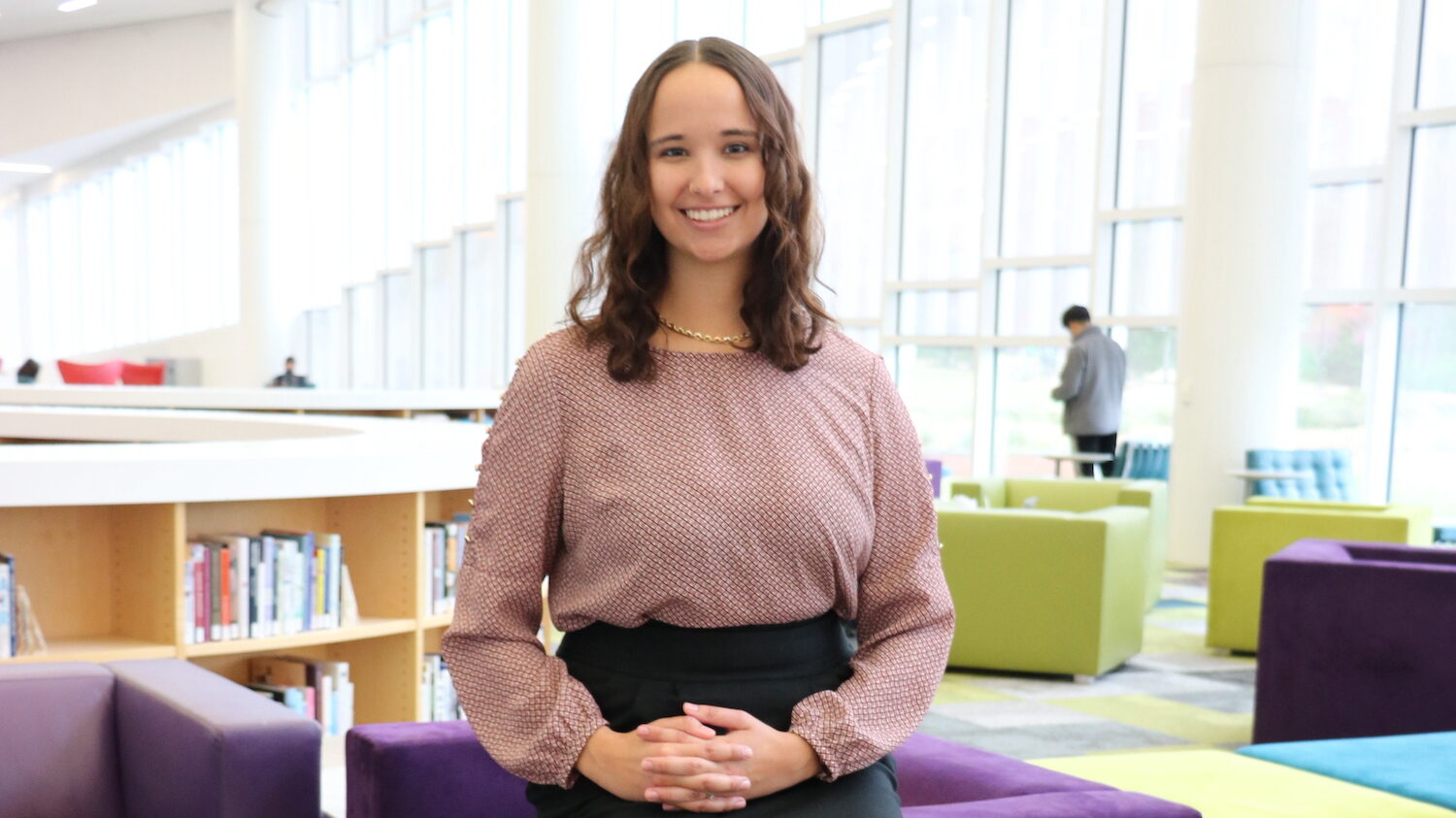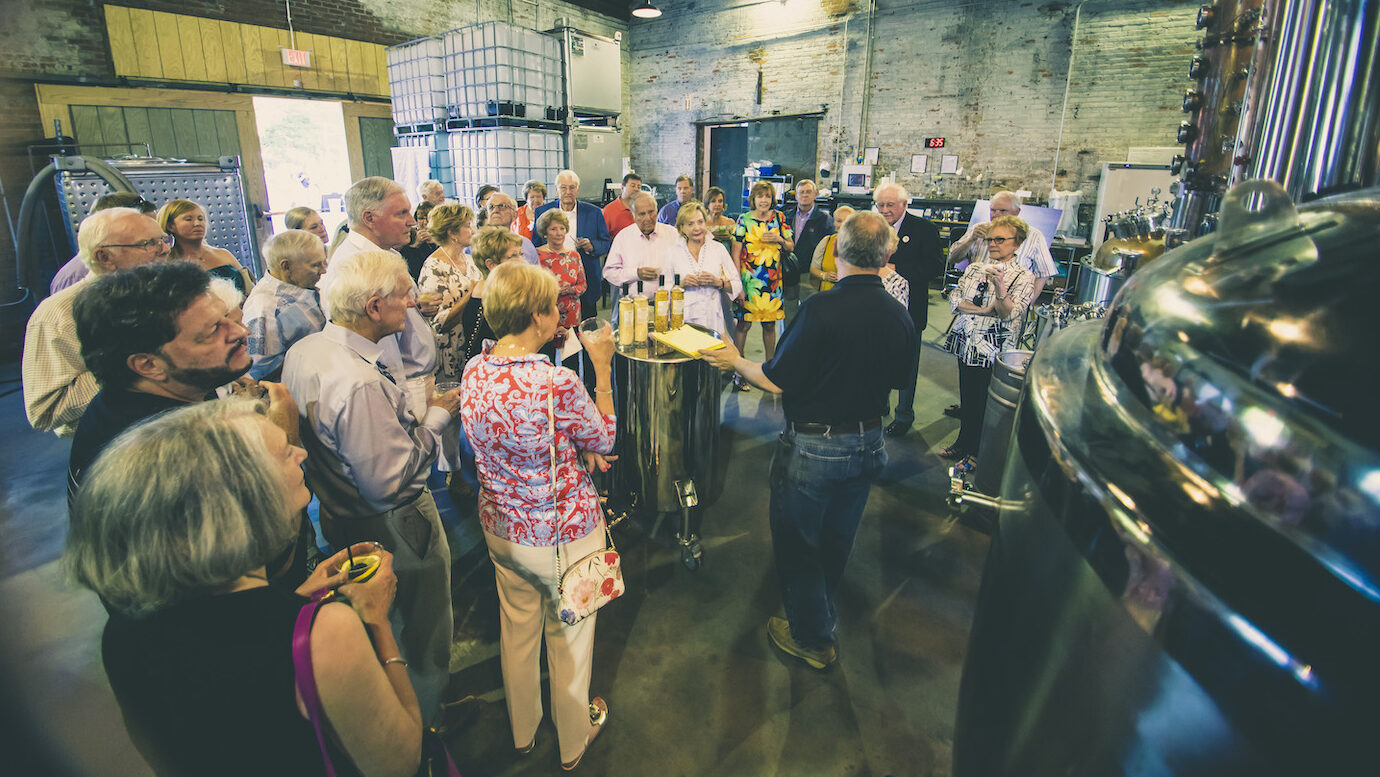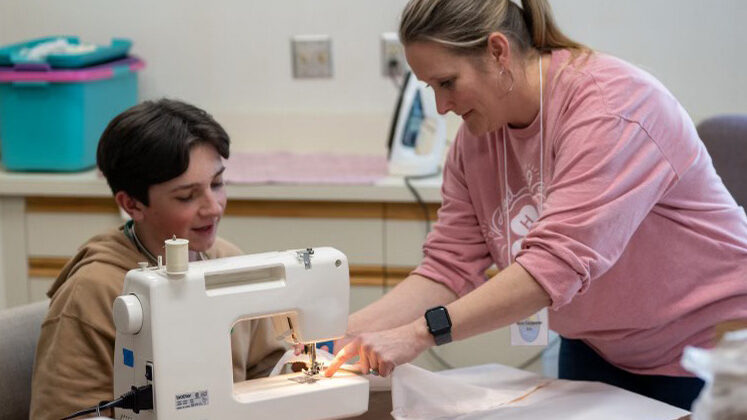Driven by Data
Completion of the Agricultural Data Science Certificate last year at NC State makes Shelly Hunt uniquely qualified to support SAS’ agriculture division.

A background in math and engineering plus an interest in agriculture started adding up for Shelly Hunt in her junior year at NC State. That’s when she decided to explore data analytics.
While earning her master’s degree in biological engineering, Hunt became one of the first students at NC State to complete an Agriculture Data Science Certificate, which bridges data science and agricultural fields of study.
Hunt’s experiences with data science led her to a job at SAS, a Cary-based company with NC State roots that develops and markets analytics software. As an agriculture and consumer goods specialist, she supports the agriculture sales division as an analyst, building industry partnerships in agricultural equipment, retail agriculture, animal science and other areas.
“Data science is the future of agriculture.”
At NC State, she was a member of the interdisciplinary research team on the Sweet-APPS project, working to reduce agricultural waste and maximize yield for North Carolina’s sweetpotato producers. SAS was an industry partner, and Hunt networked her way into an internship and then a full-time position.
“Everything I learned earning the certificate is very applicable to my current role,” she says. “I see myself as sort of the expert in machine learning on my team. It sets me apart within my group—I’m the person to go to when we talk about all things machine learning, Internet of Things and so on.”
Hunt currently serves as SAS’ liaison to NC State and the North Carolina Plant Sciences Initiative, exploring ways to optimize their partnership.
Data science is the future of agriculture, according to Hunt. “I can see how much benefit it brings industry from profitability and risk reduction standpoints. I want to help make data science approachable and applicable to growers.”
- Categories:


